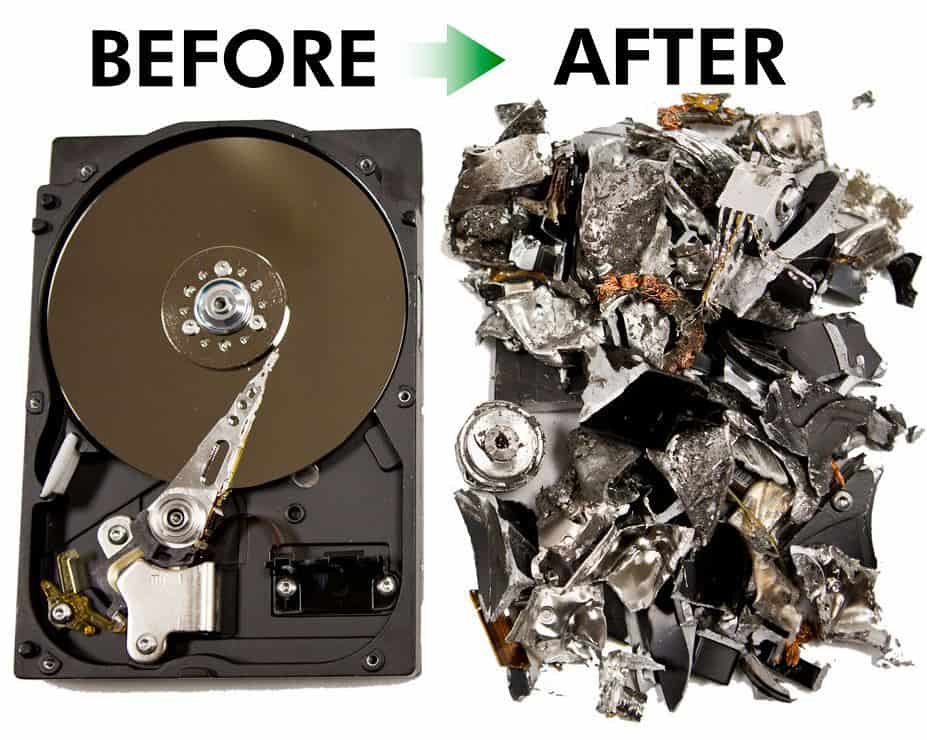Why Data Destruction is a Vital Element of Comprehensive Cyber Security
The Necessary Nature of Data Destruction in Upholding Computer System Security Services and Protecting Against Unauthorized Access
In an age where information violations and identity burglary are progressively prevalent, the importance of efficient information devastation can not be overstated. Organizations should recognize that the failing to correctly throw away delicate information positions not only lawful and financial threats yet likewise a prospective disintegration of customer trust fund. Numerous approaches, from information cleaning to physical damage, act as important safeguards versus unapproved access. Nonetheless, comprehending the implications of data destruction practices and compliance with policies elevates crucial questions about the adequacy of current techniques and their lasting viability despite developing threats.
Significance of Data Damage
In a significantly digital globe, the value of information destruction can not be overstated. As organizations generate vast quantities of sensitive info, the possible repercussions of failing to correctly get rid of and take care of of that data end up being significantly extreme. Information violations, identification theft, and corporate reconnaissance position significant risks, emphasizing the need of reliable information destruction practices.

In addition, as technology advances, so also do the methods through which malicious actors seek to make use of delicate information. Organizations has to stay attentive and aggressive in their information destruction approaches to safeguard against these progressing dangers. By focusing on data destruction, business not just protect their assets yet also foster count on among customers and stakeholders, showing a commitment to responsible data management and safety techniques.
Techniques of Effective Data Damage
To make certain the complete and irreparable destruction of delicate data, organizations can use a selection of effective techniques tailored to their certain requirements. Among the most typical methods is data wiping, which entails making use of specialized software program to overwrite existing data multiple times, making recovery basically impossible. This is particularly useful for solid-state drives and tough drives, where standard removal techniques are poor.
One more effective technique is degaussing, which makes use of strong magnetic areas to interfere with the magnetic domains on storage media, making the data irretrievable. This method is specifically suited for magnetic storage space devices, such as disk drive and hard drives.
Physical devastation is also a sensible option, involving the shredding, squashing, or incineration of storage space gadgets. This method warranties that data can not be recouped, making it perfect for organizations managing very delicate info.

Compliance With Data Defense Rules
Organizations should not just concentrate on efficient information destruction methods but additionally make sure conformity with information security regulations that regulate how sensitive details is dealt with and disposed of. Complying with these policies is necessary for maintaining and securing individual data consumer count on. Laws such as the General Data Protection Policy (GDPR) in the European Union and the Medical Insurance Portability and Responsibility Act (HIPAA) in the USA enforce strict standards on data monitoring, which include demands for the secure disposal of delicate details.
To achieve conformity, companies should implement extensive data devastation policies that straighten with these legal frameworks. This consists of identifying data that requires damage, establishing methods for protected methodsâEUR" such as shredding physical media or using software that fulfills sector criteria for information wipingâEUR" and preserving comprehensive records of damage activities. Regular audits should be performed to make certain adherence to these plans and to determine any type of prospective areas for enhancement.
Failure to conform with information protection laws can lead to considerable lawful ramifications, including significant fines and damages to an organization's online reputation. Therefore, incorporating conformity right into information devastation techniques is not just a lawful responsibility however also an essential element of a robust information safety technique.
Effects of Poor Data Handling
Poor information handling can result in extreme repercussions that prolong beyond instant operational obstacles. Organizations might face significant economic losses as a result of information breaches, which usually lead to pricey remediation efforts, legal fees, and regulatory penalties. These monetary effects can prevent and stress sources development, inevitably impacting a company's bottom line.
Furthermore, poor data handling can severely harm an organization's credibility. Partners, stakeholders, and customers might lose trust fund in an entity that fails to safeguard sensitive info, causing basics lowered customer loyalty and potential loss of organization chances. This erosion of depend on can take years to reconstruct, if it can be restored whatsoever.
Furthermore, organizations might deal with legal implications occurring from non-compliance with data protection policies. Such infractions may lead to fines and investigations, worsening the monetary worry and more staining the organization's photo.
In the realm of cybersecurity, poor information administration techniques can produce vulnerabilities that make systems much more at risk to unapproved gain access to and cyberattacks. Inevitably, these repercussions underscore the important value of carrying out durable data taking care of treatments to guard sensitive info and preserve business integrity.
Ideal Practices for Secure Data Disposal


Firstly, data should be classified according to its sensitivity. Sensitive information requires much more extensive disposal methods, such as shredding physical records and utilizing sophisticated software program for digital information wiping. Employing licensed data recommended you read devastation services guarantees compliance with industry policies and criteria.
Secondly, organizations must execute a data disposal plan that mandates regular audits. This policy must describe the treatments for data retention and damage, ensuring that outdated data is taken care of without delay and securely. Training staff members on these procedures is important to promoting a culture of safety and security awareness.
Lastly, maintaining in-depth records of disposed data boosts accountability and provides a clear audit route. This documents ought to consist of the kind of information destroyed, the method utilized, and the date of disposal.
Conclusion
Taking on robust methods such as data wiping, degaussing, and physical damage, along with compliance with regulations like GDPR and HIPAA, is essential for guarding delicate info. Neglecting appropriate information disposal techniques can lead to severe effects, consisting of information violations and legal effects.
In a period where data violations and identity burglary are progressively widespread, the relevance of reliable data destruction can not be overemphasized. data destruction. Data breaches, identification theft, and company espionage position significant hazards, underscoring the need of efficient information damage methods
Conformity with policies such as GDPR and HIPAA mandates that organizations execute stringent data security procedures, consisting of the protected destruction of information at the end of its lifecycle.
By focusing on data devastation, companies not just secure their properties yet also foster count on amongst customers and stakeholders, showing a dedication to great post to read liable information administration and security methods.
Organizations have to not only concentrate on effective information destruction approaches but likewise guarantee compliance with data protection regulations that regulate how delicate info is handled and disposed of.